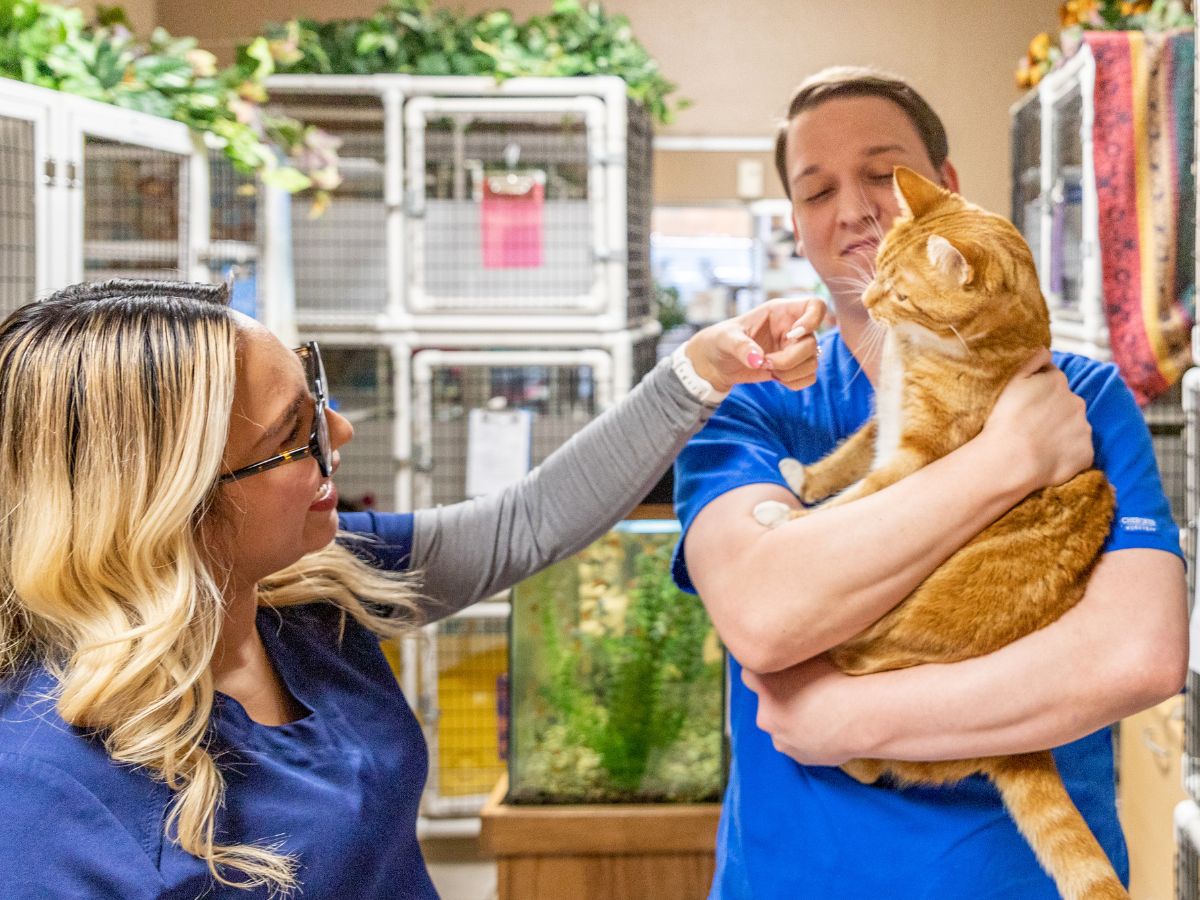Cat Diabetes
Our veterinary professional can diagnose and assist you in managing diabetes in your cat.
Cat Diabetes
Feline diabetes, also known as cat diabetes, is on the rise. A recent study found that the number of cat diabetes cases has risen by over 18 percent between 2006 and 2015. Fortunately, this condition can be diagnosed at A Cat Hospital, and it is manageable.
What Are the Causes of Cat Diabetes?
Cat diabetes is caused by many of the same things that cause human diabetes. If your cat is overweight or obese, they are at high risk. The same is true if your cat doesn’t get enough exercise and if you are feeding them a poor diet. In some cases, your cat’s own immune system can cause the condition. The immune system can attack the pancreatic cells that produce insulin, resulting in diabetes.
What Are the Symptoms of Cat Diabetes?
Because cat diabetes is serious and requires treatment, you must be able to detect the symptoms of the condition. Because your cat cannot tell you if they don’t feel well, it is up to you to be able to recognize the signs. They include:
- Increased urination, often outside the litter box
- Excessive thirst
- Increased appetite
- Weight loss even though your cat is eating more
How Is Cat Diabetes Diagnosed?
If you suspect that your cat has diabetes, your veterinarian will perform a urinalysis on them. The vet will check for the presence of glucose and ketones in the urine. If the test is positive, they will measure your cat’s blood glucose concentration. These tests can give your vet a definitive diagnosis.
How Is Cat Diabetes Treated?
Unfortunately, there is no cure for cat diabetes; however, the condition can be managed. There are a few ways that you can manage your cat’s diabetes. These include:
- Insulin injections: Since your cat cannot provide enough of their own insulin, it will need insulin injections daily. This is something that your vet will teach you to do at home.
- Diet: After your cat’s diagnosis, you will need to change its diet. Studies have shown that two different meal plans can help. The first is a diet that is high in fiber and complex carbohydrates. The other is a diet that is low in carbohydrates and high in protein. Your vet can recommend the best diet for your cat. They can also prescribe food for diabetes to make feeding easier.
- Exercise: Your cat will need to get enough exercise to manage their diabetes. Setting up a daily playtime with toys that promote activity can help. If you are having trouble getting your cat to exercise, your vet can give you some ideas.
If you suspect that your cat has diabetes, schedule an appointment with A Cat Hospital. We treat patients in Las Vegas and Henderson. Our veterinary professional can diagnose the condition and help you manage it. To schedule an appointment, give us a call today at (702) 454-4400.


